Students Academic Concerns
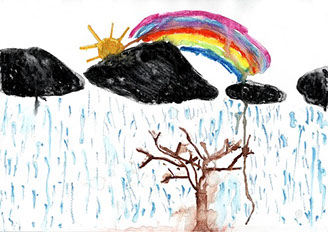

Home | Areas of Application
Education is an important part of a child's life spanning from preschool through high school and for some training at a university or technical school.
School-related difficulties, whether of a learning, social and emotional nature, have a negative influence on academic performance, as well as having an effect on the child's personal and family dynamics. It is a cause of stress and anxiety that can destabilize family life and interfere with other activities such as sports and play.
90% of students who are challenged with school problems have depressive tendencies, do not know
how to manage their stress, are anxious about their school performance, concerned about their relationships
with others or are fearful of
disappointing their parents.
This can lead to eating disorders, concentration problems, lack of physical
or mental energy, withdrawal or inhibitions and
therefore a sense of failure.
CAP Program offers services to facilitate change in students who are struggling with academic issues.
CAP will take into account the complex emotional and psychological factors that are involved when a child, teenager or young adult has academic challenges. Whether it is trouble adapting to school environment, difficulties in making friends, problems with a teacher or classmate, not understanding the curriculum, being too shy to ask for help, or lacking motivation, CAP will allow the student to discover the origin of the obstacles that are preventing them from living a vibrant life.
Listening to music and expressing their feeling through drawing is a safe and a meaningful
way for students to connect with their
inner essence and creativity.
CAP provides a healthy outlet to express and regulate emotions which
when not addressed can lead to depression, anxiety or other
mental health disorders.
CAP considerably reduces stress and thus makes it possible to take a step
back from our concerns to find solutions. This program
provides an individualized supportive approach which is adaptable to the needs of children, teens or
young adults.
Adeline is a sweet little girl, who is very sensitive. Although she lives in a stable family environment, her father has a serious chronic illness that requires regular medical management, that she seems to accept well.
Often when parents consider the CAP program, the child is challenged academically. Initially she was performing well in school, but since her father's illness her academic performance suddenly dropped significantly. In addition, she no longer wants to participate in any activities after school, dance, singing, theater, and her parents feel that she is withdrawn from herself.
When her parents introduced CAP to her, she immediately appreciated the idea of drawing under musical induction. She was fully involved in the sessions and attended all the sessions as scheduled.
CAP has been very beneficial for her. Adeline loved drawing and telling a story after each drawing, and very quickly after 3 or 4 weeks, far before the end of the program, her parents and teacher noticed an improvement in communication, academic results and socialization. She asked to go back to singing in a choir, and to her dance classes and was also making new friends.
During the final assessment with the therapist, she was able to express to her parents: "I loved drawing with this music because it allowed me to talk with God".
The parents understood then, through the drawings and her comments, that their little girl lacked spirituality in her life and needed her connection to God nourished.
The parents, who were atheist, had no idea of their daughter's spiritual desire and the child did not dare to mention it for fear of disappointing her parents and feeling marginalized from the other members of the family. Because her parents were attentive and concerned about their child's well-being, they worked toward finding solutions that respected their daughter's spiritual needs. As a result, the child has been able to lead a happy and fulfilled school and social life.
CAP provides and opportunity for parents and educators to discover a child's emotional needs and to take into account what they think and feel, even when the child cannot formulate their thoughts and emotions into words. It is a step in their life journey that allows them to see who they really are and respects their authentic and deep self.
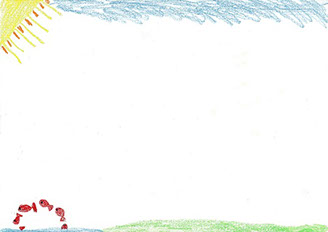
Reference Drawing #1
without music
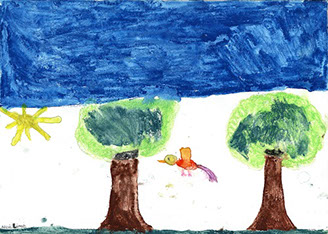
Drawing #1
with music

Drawing #2
with music
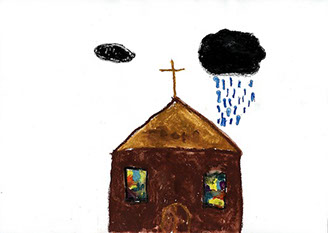
Drawing #3
with music
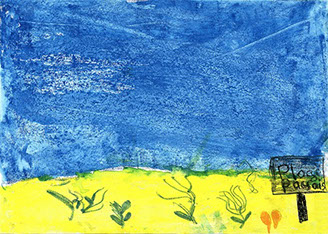
Drawing #4
with music
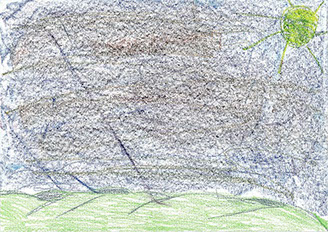
Drawing #5
with music

Drawing #6
with music

Drawing #7
with music
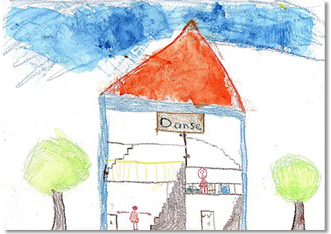
Drawing #8
with music
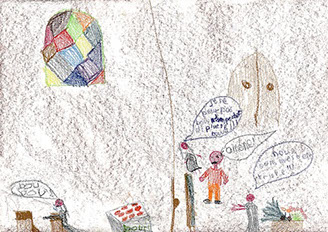
Drawing #9
with music
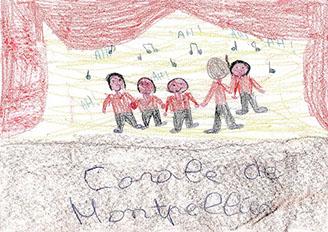
Drawing #10
with music
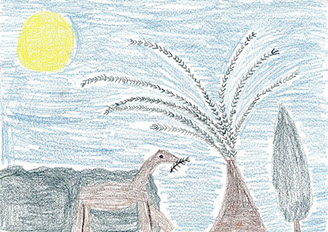
Reference Drawing #2
without music